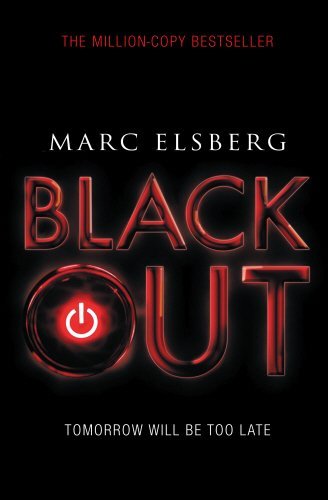
The story starts when Piero Manzano, an Italian IT expert and sometime hacker, has a traffic accident at the moment the lights go out in Milan. We are then transported rapidly in turn to Austria, Germany, France and the Netherlands. Across Europe, there is mounting panic. As the hours without power turn into days, the dangers mount up. Some are mundane, such traffic light failure increasing traffic accidents, fuel pumps stopping so transport comes to a standstill, heating and hot water unobtainable, and the ATMs freezing so nobody has any cash. More dramatically, there are outbreaks of cholera, and the food supply dwindles.
Along the way, we are given brief glimpses into the mysterious workings of a sinister ‘Command Headquarters’. It soon becomes obvious that this is deliberate sabotage, a cybercrime of enormous proportions. But who is involved and what are they demanding in return for holding Europe hostage for so long? Above all, is there any way to overturn their attacks and get things back to normal again?
Manzano teams up with a fearless journalist called Shannon, and the two of them collaborate with Europol, the French and German governments, and a raft of other organisations all working together to keep things running while causing the minimum of panic. First, the hackers disable the software controlling the power grid, but then move on to the hardware, destroying switchgears and transmission lines. The crisis brings out both the best and the worst in people – there is looting and profiteering, but people also cooperate to create emergency shelters. Within about a week, it becomes obvious just how thin the veneer of civilisation really is.
Black Out has the fast-paced, slightly breathless quality of a disaster movie, with rapid scene changes and a large cast of characters. If you are not into this type of action, the constant shift of points of view can become a little wearisome. A novel can never be as memorable visually as a film, nor does a power cut make for compelling viewing like a volcano eruption. Perhaps it is aimed at those who enjoy conspiracy thrillers, eco-thrillers and tales of terrorist attacks, without recourse to explicit graphic violence.
Where this novel does succeed is not so much in its action but in that it forces us to think about the dire consequences of a continent-wide power outage. So realistic are these predictions and descriptions that the author has been invited to give talks about emergency planning scenarios. The problem with this kind of story is that we are introduced too rapidly to too many characters, so it is hard to become overly attached to any of them. Although the author does his best to push all the right buttons – endangering children and the elderly, for instance – this remains a frightening intellectual exercise rather than a story that pulls the heart strings.
Black Swan
Print/Kindle/iBook
£4.99
CFL Rating: 3 Stars